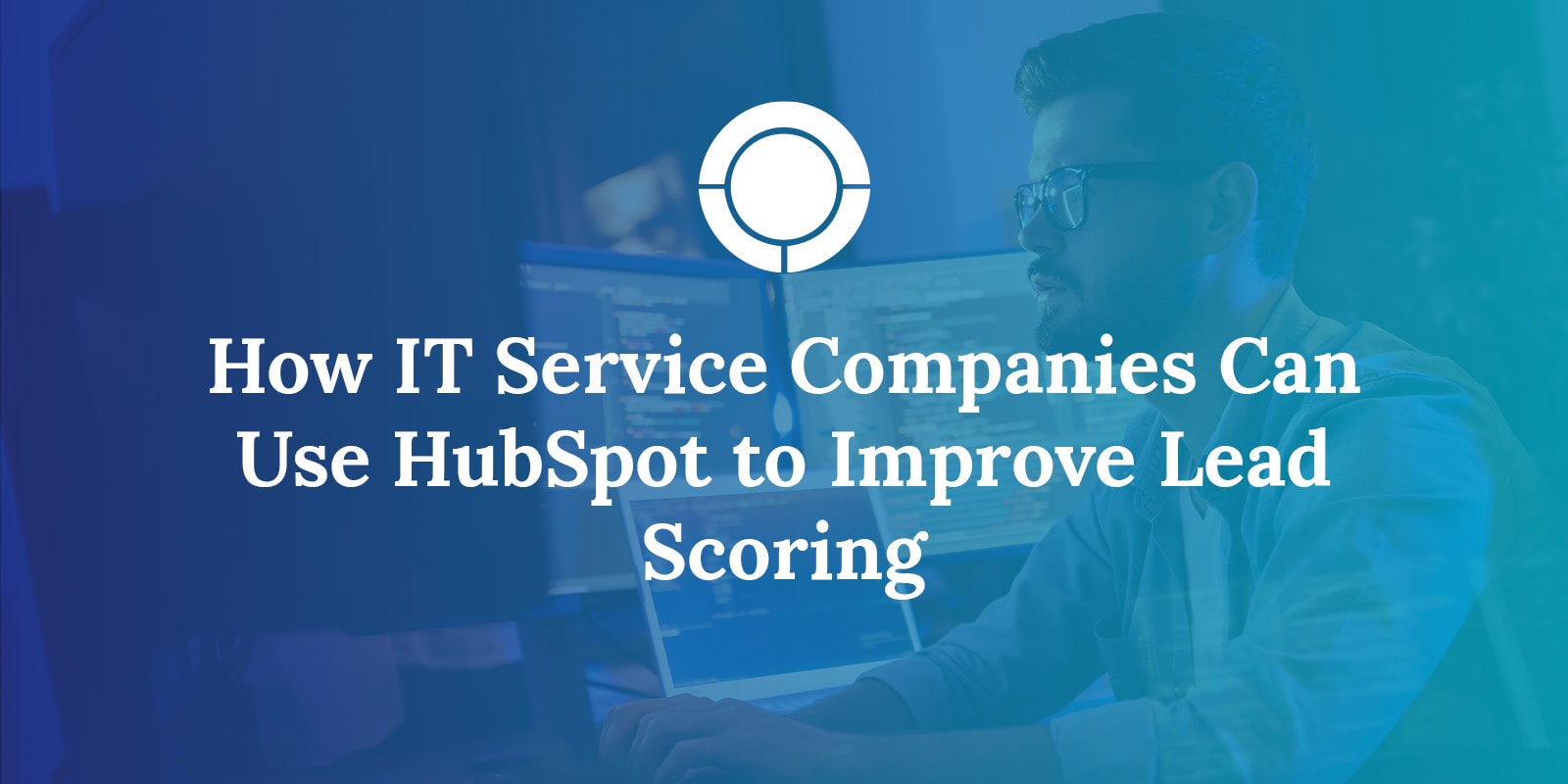How IT Service Companies Can Use HubSpot to Improve Lead Scoring

August 31, 2023

HubSpot can be a powerful marketing automation software that helps B2B tech companies streamline their lead scoring and increase their chances of converting leads into customers. In this blog post, we will explore how MSPs and other IT service companies can use HubSpot to improve their lead scoring and drive better results.
Lead scoring is the process of assigning values, often in the form of numerical "points," to each lead you generate for the business. By assigning a score to each lead, your sales team can prioritize outreach and focus their efforts on the most qualified leads. This ultimately helps in saving time, increasing efficiency, and improving conversion rates.
Lead scoring can seem complicated; however, MSPs can leverage HubSpot to enhance their lead scoring process. Here’s how.
Define and Align Your Ideal Customer Profile (ICP)
Before scoring your leads, it's essential to understand who your ideal customers are. HubSpot allows you to create customer personas and define your ICP. By integrating your CRM with HubSpot, you can import valuable data about your existing customers and use it to analyze and identify patterns and similarities like the examples above. This information can help you create a scoring system that aligns with your ICP.
Capture and Analyze Valuable Lead Data
HubSpot's robust platform offers a variety of tools for capturing and analyzing lead data. By tracking your leads' interactions with your website, emails, and social media, you can gather valuable data points that indicate the level of interest and engagement. HubSpot also provides lead intelligence data, such as job title, company size, and industry, which can further aid in assigning relevant scores.
Here are six different lead scoring models based on the type of data you can collect from the people who engage with your business:
- Demographic information
- Company information
- Online behavior
- Email engagement
- Social engagement
- Spam detection
Implement Lead Scoring Workflows
HubSpot's automation workflows feature allows you to set up lead scoring rules based on specific criteria. For example, you can assign higher scores to leads who have visited a pricing page, downloaded a white paper, and/or requested a demo. By setting up these workflows, you can ensure that leads are scored accurately and consistently.
Integrate Marketing and Sales Activities
HubSpot seamlessly integrates marketing and sales activities, ensuring a cohesive lead scoring process. With HubSpot's lead scoring capabilities, you can easily transfer qualified leads to your sales team. By providing your sales team with a clear understanding of each lead's score, behavior, and interactions, they can quickly follow up and engage with the most promising prospects.
Continuously Refine and Improve Lead Scoring
One of the biggest advantages of using HubSpot for lead scoring is the ability to continuously refine and improve your scoring methodology. By analyzing the performance and conversion rates of your leads, you can identify trends and patterns that indicate a need for adjustment. HubSpot's reporting and analytics tools allow you to track key metrics and make data-driven decisions to optimize your lead scoring strategy.
In conclusion, MSPs can leverage HubSpot's comprehensive suite of tools to improve their lead scoring process. By defining your ICP, capturing valuable lead data, implementing lead scoring workflows, integrating marketing and sales activities, and continuously refining your strategy, you can increase the effectiveness of your lead scoring efforts and drive better results for your MSP business. Once you begin your lead scoring processes, read HubSpot’s article on 3 Ways to Make Your Lead Scoring Smarter!